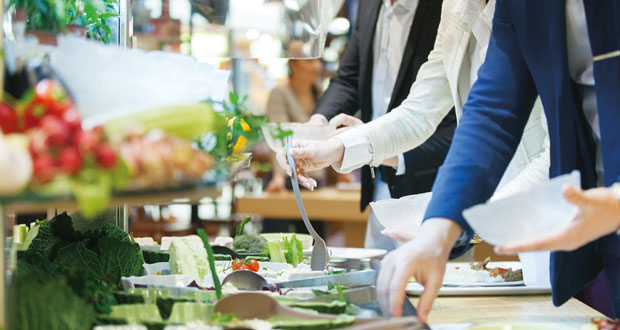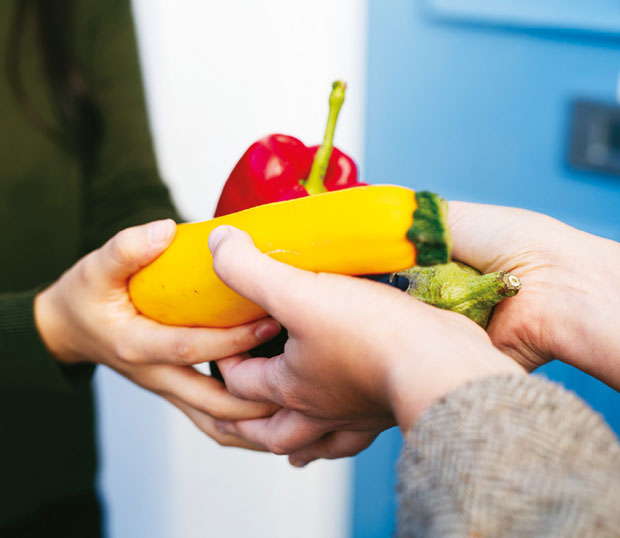WASTE NOT WANT NOT
The peril of offering sustainable meal options no one wants is an important consideration warns Charles Abraham, Food Platform Director, Sodexo UK & Ireland. Sodexo’s first annual Sustainable Food Barometer found a gap between aspirations and actual behaviours when it comes to delivering sustainable foodservices. The research shows, convenience, price and taste are still the primary drivers of choice when it comes to food.
Says Abraham: “Producing a ‘sustainable meal option’ that is perceived as less appealing or more expensive for the consumer will have the unintended consequence of creating food waste when few people choose it than they do at home, taste and cost still matter.
“Our chefs continue to work hard to reformulate recipes, rework our traditional favourite dishes as well as developing new ones to help our consumers make informed and sustainable meal choices, without compromising on taste or affordability.”
For ISS, while a key priority is to encourage customers to make more sustainable choices there will always be some waste inherent in the food system. Where that happens, there are processes in place that as much as possible ensure no edible food goes to waste. For that reason, ISS has teamed up with the food-waste fighting app Olio which provides a platform for people to pass on unwanted food to other people in their local community instead of throwing it away.
Says Cregan: “ISS believe in our responsibility to our people, to the planet, and to the communities we serve, and so it makes perfect sense for us to be rolling out this great initiative across our business.
“In partnership with our clients, we now have 35 of our NHS sites and 15 of our workplace sites operating this scheme. We also have similar schemes operating in our schools where we donate to holiday clubs, after school clubs, and school pantries that are supporting their local communities.”
TECHNOLOGY
Technology is playing a greater part for foodservice suppliers to support sustainable choices and help monitor demand to reduce waste. According to Selander, at farm level, tech is increasingly being used to measure biodiversity, while in the kitchen, carbon foot-printing solutions are helping chefs develop recipes that are tasty, nutritious and have less of a negative environmental impact.
“AI can also help with demand forecasting to help reduce waste,” she says. “For example, how events such as strikes or traffic congestion will impact covers. Existing tech platforms support food waste reporting but we also need technology that progresses our own understanding and recommends actions to reduce waste.
“And at the other end of the process, tech solutions are being trialled where waste stream information is embedded into packaging materials which can be automatically read at waste management facilities, thereby minimising waste stream contamination.”
For Compass, a lot of work has been done on the creation and analysis of low carbon, nutritionally complete recipes. To help enhance their chefs’ ability to design seasonal, plant-based and low waste menus, these are centrally analysed through a partnership with sustainability tech company and carbon impact specialists, Foodsteps.
Says Ball: “This level of insight evidences why having depth and diversity in our knowledge base is such an asset and why growing it further remains a priority – helping to increase Compass’ focus on the wider societal and economic contribution the business can make, and on the opportunities that come from doing so.”
She concludes: “To transition to a nature positive, climate resilient and healthy future, the economics of our supply chain need rewiring as part of a wider, social project informed by ecological science. At the intersection of academia, government and business is where we can achieve this – strengthening collaborations to find commercially attractive, socially inclusive solutions, faster.”






